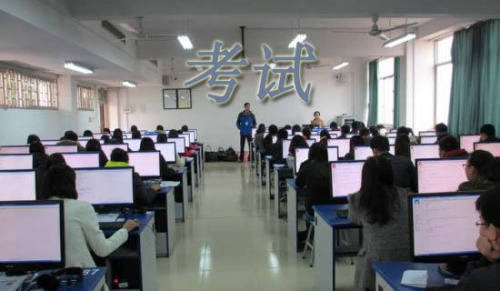英语四级口语考试必背范文
英语四级就要到来了,不知道同学们复习工作做得如何了呢,为了帮助大家顺利通过大学英语四级考试,下面是小编为大家搜索整理的英语四级口语考试必背范文,希望能给大家带来帮助!更多精彩内容请及时关注我们应届毕业生考试网!

01 the language of music
a painter hangs his or her finished pictures on a wall, and everyone can see it. a composer writes a work, but no one can hear it until it is performed. professional singers and players have great responsibilities, for the composer is utterly dependent on them. a student of music needs as long and as arduous a training to become a performer as a medical student needs to become a doctor. most training is concerned with technique, for musicians have to have the muscular proficiency of an athlete or a ballet dancer. singers practice breathing every day, as their vocal chords would be inadequate without controlled muscular support. string players practice moving the fingers of the left hand up and down, while drawing the bow to and fro with the right arm—two entirely different movements.
singers and instruments have to be able to get every note perfectly in tune. pianists are spared this particular anxiety, for the notes are already there, waiting for them, and it is the piano tuner’s responsibility to tune the instrument for them. but they have their own difficulties; the hammers that hit the string have to be coaxed not to sound like percussion, and each overlapping tone has to sound clear.
this problem of getting clear texture is one that confronts student conductors: they have to learn to know every note of the music and how it should sound, and they have to aim at controlling these sound with fanatical but selfless authority.
technique is of no use unless it is combined with musical knowledge and understanding. great artists are those who are so thoroughly at home in the language of music that they can enjoy performing works written in any century.
02 schooling and education
it is commonly believed in united states that school is where people go to get an education. nevertheless, it has been said that today children interrupt their education to go to school. the distinction between schooling and education implied by this remark is important.
education is much more open-ended and all-inclusive than schooling. education knows no bounds. it can take place anywhere, whether in the shower or in the job, whether in a kitchen or on a tractor. it includes both the formal learning that takes place in schools and the whole universe of informal learning. the agents of education can range from a revered grandparent to the people debating politics on the radio, from a child to a distinguished scientist. whereas schooling has a certain predictability, education quite often produces surprises. a chance conversation with a stranger may lead a person to discover how little is known of other religions. people are engaged in education from infancy on. education, then, is a very broad, inclusive term. it is a lifelong process, a process that starts long before the start of school, and one that should be an integral part of one’s entire life.
schooling, on the other hand, is a specific, formalized process, whose general pattern varies little from one setting to the next. throughout a country, children arrive at school at approximately the same time, take assigned seats, are taught by an adult, use similar textbooks, do homework, take exams, and so on. the slices of reality that are to be learned, whether they are the alphabet or an understanding of the working of government, have usually been limited by the boundaries of the subject being taught. for example, high school students know that there not likely to find out in their classes the truth about political problems in their communities or what the newest filmmakers are experimenting with. there are definite conditions surrounding the formalized process of schooling.
【英语四级口语考试必背范文】相关文章:
6.小学英语必背短语
8.英语必会必背短语